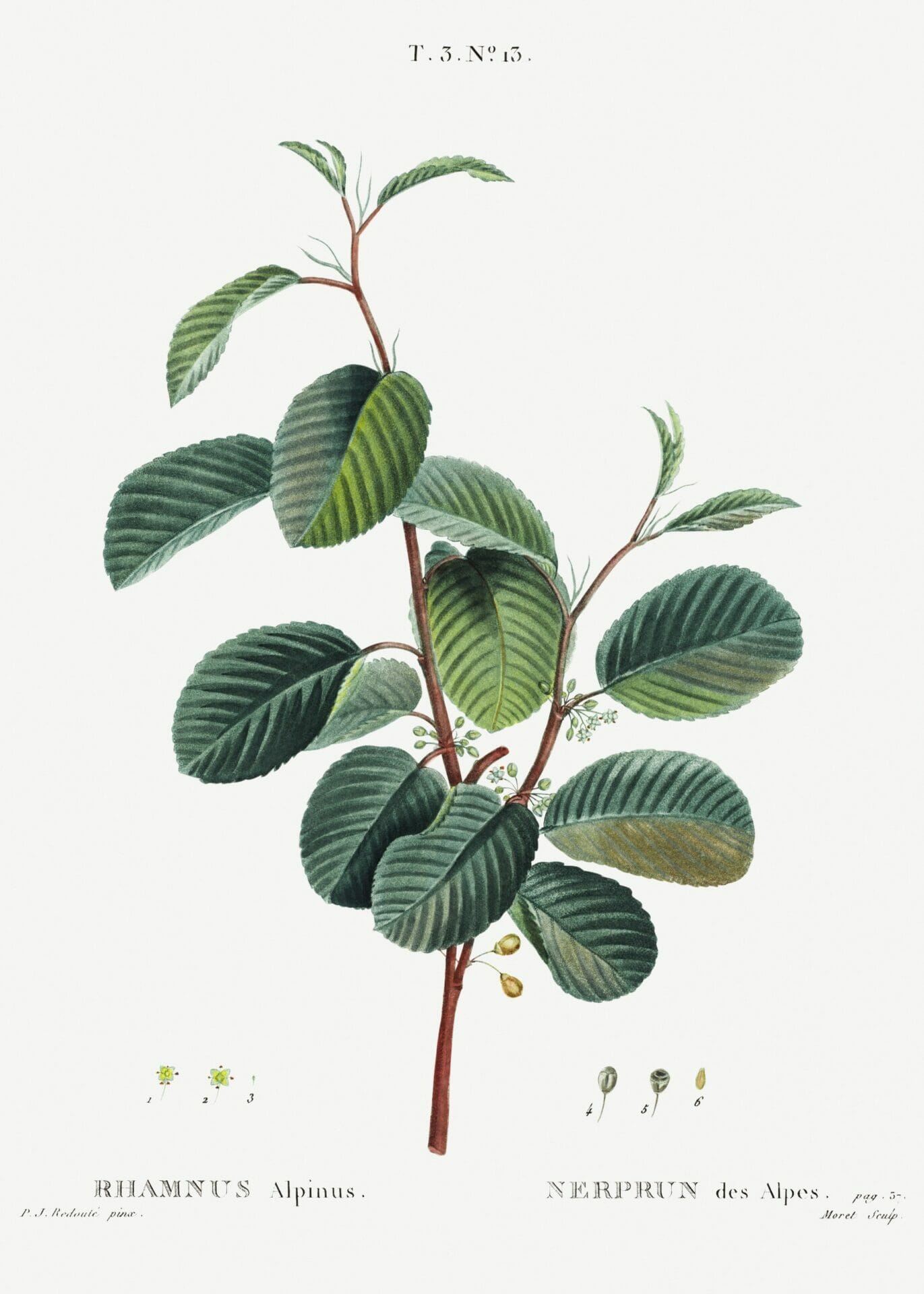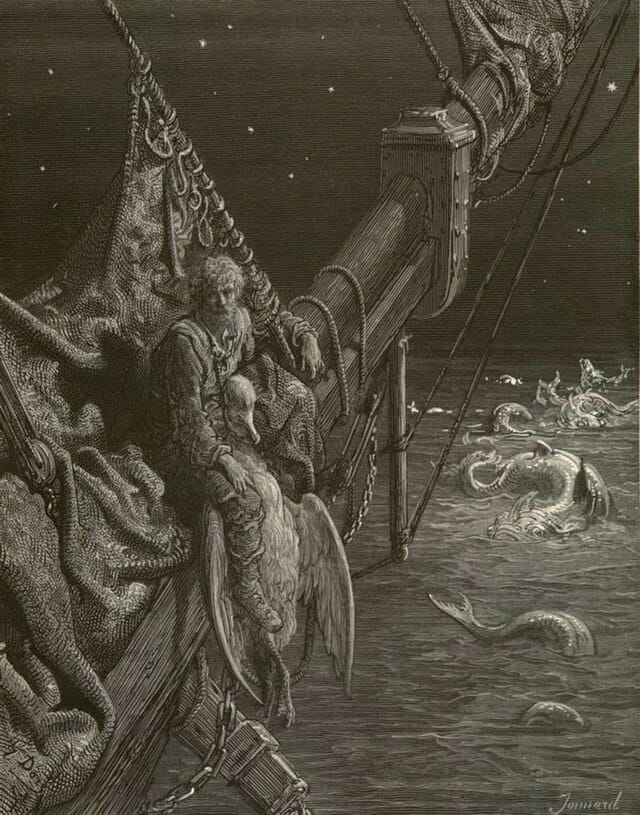
The Rime of the Ancient Mariner | Suffering and learning
Length
While walking together to a wedding, three young boys meet an old sailor: the man, curved by his age but with a “glittering eye”, stops one of them and tells him his story. This is the premise of The Rime of the Ancient Mariner, the poem that opens Samuel Taylor Coleridge’s Lyrical Ballads (1798).
It is an ancient Mariner,
And he stoppeth one of three.
‘By thy long grey beard and glittering eye,
Now wherefore stopp’st thou me?
The Bridegroom’s doors are opened wide,
And I am next of kin;
The guests are met, the feast is set:
May’st hear the merry din.’
In many of his literary creations, Coleridge works with fantastic, dream-like worlds, where realistic and supernatural events coexist. The Rime of the Ancient Mariner dwells in a rarefied atmosphere but also adopts the solemn tone of a maritime epic, like Herman Melville’s Moby Dick. To this day, the interpretations of this ballad are numerous, because of its dense and mysterious symbolism.
The tale of the Mariner
The ice was here, the ice was there,
The ice was all around:
It cracked and growled, and roared and howled,
Like noises in a swound!
At length did cross an Albatross,
Thorough the fog it came;
As if it had been a Christian soul,
We hailed it in God’s name.
During a voyage, the Mariner and his crew are hit by a dreadful storm, that conducts the ship inside a maze of ice. Soon enough, an albatross comes flying by, and as he circles around the ship, the ice starts to break. All the sailors welcome the majestic bird as a good omen. Instead, the Mariner kills it with his crossbow. After that, the ship remains stuck, leaving everybody thirsty and hungry. Meanwhile, the water fills with monstrous, slimy creatures. As a punishment, the crew forces the Mariner to wear the corpse of the albatross on his shoulder.

There is a glimpse of hope when another ship approaches. However, it is a ghostly ship, whose only two passengers are Death and Life-in-Death. After a game of dice between the two entities, all the sailors drop dead, except for the Mariner. After spending days alone, unable to die, the Mariner looks at the slimy creatures, and they suddenly appear beautiful in his eyes. He finds himself able to pray, and the albatross falls from his back. Immediately after, a host of spirits enters the dead bodies, who begin to move and perform their old task.
Back at the harbor, the spirits leave the bodies of the crew, and the Mariner encounters a Hermit. He tells him what happened and frees himself from guilt. That sense of guilt, though, returns cyclically and it persists until the Mariner tells his story again.
Looking for the hidden meaning
O happy living things! no tongue
Their beauty might declare:
A spring of love gushed from my heart,
And I blessed them unaware:
Sure my kind saint took pity on me,
And I blessed them unaware.
The self-same moment I could pray;
And from my neck so free
The Albatross fell off, and sank
Like lead into the sea.
The motives that lead the Mariner to kill the albatross remain unknown. That’s why The Rime of the Ancient Mariner has been subject of many interpretations. To many, the ballad is a Christian parable of mankind, that shows the original sin and the following path of repentance. Others focus on the conflict between nature and man, whose own nature is to try to overcome the limits of natural laws. Romantic intellectuals would call it “positive evil” – an attitude that alters nature and creates an imbalance. Recently, another reading seems to link The Rime of the Ancient Mariner to explorations and colonialism. The killing of the albatross would be the signal of the betrayal of the native people’s trust, followed by a torturous sense of guilt.
A sadder and wiser man
The Rime of the Ancient Mariner is also a homage to the power of stories. As a matter of fact, the only relief he finds is when he can share his tale. It is a blessing and a curse, and not only to him. The Rime of the Ancient Mariner ends with the Wedding Guest:
He went like one that hath been stunned,
And is of sense forlorn:
A sadder and a wiser man,
He rose the morrow morn.
Listening to the old man’s parable made him sad, because he shared his pain, but also wiser. This is an allusion to the cathartic power of stories. It is an early topos of Greek literature: “pathèin mathèin”, which means that suffering leads to learning. Listening to other people’s deeds sometimes can be as nurturing as experiencing them firsthand. So, narration can be equally healing for those who speak and those who listen.
Tag
Buy a ☕ for Hypercritic









